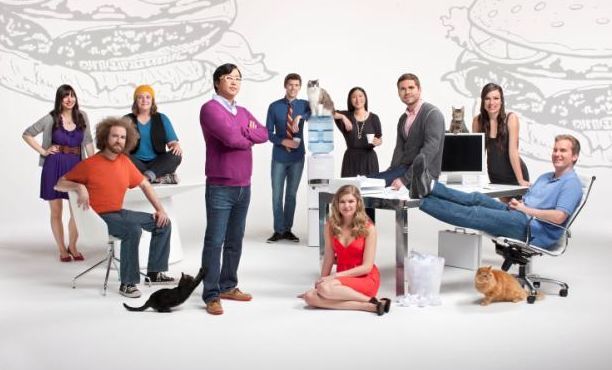No surprise: McGinn vetoes tunnel
Feb 17, 2011, 3:42 PM | Updated: Mar 28, 2011, 3:46 pm
 Seattle Mayor Mike McGinn has vetoed the city council’s decision that moves forward with plans to replace the Alaskan Way Viaduct with a tunnel through Seattle.
Seattle Mayor Mike McGinn has vetoed the city council’s decision that moves forward with plans to replace the Alaskan Way Viaduct with a tunnel through Seattle.
McGinn’s veto is not a surprise. And it won’t be a shock to anyone when the Seattle City Council overrides his veto, since eight of the nine council members have already stated their support for the agreements that bind the city and state together for the deep-bore tunnel.
The council’s Richard Conlin and Tom Rasmussen issued a statement saying they are disappointed with McGinn:
“While not unexpected, we are disappointed the Mayor has decided not to protect the City’s best interests and to ignore the ten-year regional decision making process of elected officials, regional and local leaders, community members, and stakeholders in replacing the Alaskan Way Viaduct portion of SR 99 with a deep bored tunnel.
“Ten years of debate is enough. This solution is a critical safety measure for the corridor, while serving as an opportunity for better transit and mobility, bringing economic vitality to the region and creating a waterfront for all.”
Here’s McGinn’s full veto letter:
On February 7, 2011, the City Council adopted Council Bill 117101, relating to the State Route 99 Alaskan Way Viaduct and Seawall Replacement Program; entering into certain agreements with the State of Washington as provided in RCW 39.34.080, RCW Chapter 47.12, and other applicable law; and ratifying and confirming certain prior acts. After careful consideration, in order to protect Seattle from the unacceptable risks of this project, I hereby veto this ordinance.
A veto is a serious act. Such an action calls for sober analysis and full transparency to both you and the public. As Mayor, it is my duty to safeguard the public interest. It is my responsibility, along with the City Council, to protect public assets and the public purse in our care. This is not about politics. The people of Seattle expect us to make sure the laws of the City are faithfully executed, to ensure the City is protected from harm and risk, and to invest the public resources entrusted to us prudently. This ordinance will prevent us from meeting those expectations.
First, we must protect Seattle from the likelihood of unaffordable cost overruns on the tunnel. A comprehensive Oxford University study concluded that 90 percent of megaprojects experienced cost overruns. The Brightwater sewage tunnel is just one local example of a megaproject that has experienced cost overruns. The deep bore tunnel would be the largest tunnel bored anywhere in the world, and it would be bored through extreme soil conditions. We should therefore expect cost overruns on this project.
When those cost overruns occur, Seattle residents will likely end up paying to complete the project. Although Governor Christine Gregoire originally promised the state would cover cost overruns when the tunnel was announced in January 2009, the state legislature changed the deal and passed a law capping the state’s contribution at $2.4 billion, leaving Seattle taxpayers to carry the burden of paying for cost overruns. State legislative leaders have since made it very clear that they have no intention at all of changing this law – and that they expect Seattle to pay for any cost overruns. Worse, funding for the state’s tunnel project is incomplete, short $700 million of their basic project budget. This funding shortfall has been known for two years, but it remains unresolved. This does not inspire confidence that Seattle taxpayers will not be given a bill we cannot afford to pay.
Second, we must protect basic city services from severe cuts initiated by cost overruns. Last year we worked together to close the $67 million budget deficit in a thoughtful and sustainable way. We had to close some community centers and lay off City employees, among other cuts, to bring our budget into balance without undermining the quality of services we provide to Seattle residents. The massive size of the tunnel project means that even a small cost overrun would force us to make further and deeper cuts. The average cost overrun on a megaproject is 34 percent. A cost overrun of that size on the tunnel would obligate Seattle taxpayers to spend hundreds of millions of dollars that we currently do not have. We must not force Seattle to choose between paying the cost overruns on the tunnel and keeping officers on the street, keeping our parks and libraries open, and providing important services to Seattle residents in need.
Third, we must protect downtown Seattle businesses and residents from the crippling impact of adding more than 70,000 new cars per day to our already overburdened streets. The current viaduct is used primarily to access downtown neighborhoods. About 50% of viaduct users are coming from West Seattle, Ballard, and Aurora north to destinations within downtown. Downtown Seattle is the central economic engine for our state. Seattle needs a viaduct replacement solution that increases access to the commercial core of downtown, and provides mobility for freight. The tunnel proposal is a bypass highway that does not provide for either.
The tunnel project not only fails to address those needs – it worsens the ability to get to downtown and Pioneer Square to live, work, shop, and do business. The round-trip tolls of $8-$10 that the state will impose on the tunnel will divert two-thirds of the existing Alaskan Way Viaduct traffic onto city streets. There is no plan to accommodate all that traffic. There is no money to improve transit services to accommodate all that traffic. There is no assessment of how badly that traffic will hurt downtown businesses, one of the key economic engines that make Seattle a prosperous place to live. Although the tunnel would carry fewer than half the cars it is designed for—less traffic than the Ballard Bridge—this ordinance commits the City to supporting its construction before work has been done to mitigate its impact on our City’s streets.
Fourth, we must protect Seattle from a hasty rush to approve this project before these concerns are addressed. The State Environmental Policy Act (SEPA) exists to show the public the harmful impacts caused by a project, both to inform the decision process as well as to provide an opportunity for leaders to negotiate solutions. Both City and State law are clear: a final Environmental Impact Statement (EIS) must be completed before a final decision is made that commits the government to a particular course of action. The EIS on the tunnel project will not be final until fall 2011. To commit to the tunnel alternative before the EIS is complete raises serious questions about whether the City and State are complying with SEPA and certainly is not consistent with the intent of the law. Furthermore, it is not prudent. The City should be using this time to negotiate necessary solutions and ensure they are funded.
I have received letters from Seattle residents, including the artists living at 619 Western and from businesses in Pioneer Square, expressing their frustration that important issues such as construction impacts to buildings and streets are not being properly addressed. The National Historic Preservation Act requires the Washington State Department of Transportation (WSDOT) to get approval from historic preservation experts on their plans to protect historic properties and the historic district from harm. This expert assessment, called Section 106 review, must be complete before we commit to a specific alternative. Section 106 experts are sounding alarms that WSDOT’s plans for protection of historic properties are grossly insufficient. Again, committing the City to the tunnel before this review is complete violates at least the spirit of the law, and it is also not prudent. We as a City should be using this time to review and improve WSDOT’s plans for protecting 14 historic buildings, safeguard the Pioneer Square neighborhood, and negotiate adequate funding. That is our job as elected leaders. The community has asked us to protect their interests and respond to their concerns. This ordinance will prevent the City from doing so.
Finally, the public deserves a chance to weigh in on this important matter. We routinely ask the public to vote on levies that fund our most important services. But this ordinance commits the City to moving ahead with a project that costs more than all of our levies combined – without a public vote. In March 2007, the Council asked voters to decide whether they wanted to rebuild the viaduct or build a similar tunnel in that location. Voters overwhelmingly rejected both options. Two initiatives have been filed to give the public a chance to vote on the tunnel. We should not deny them that opportunity by enacting this ordinance.
For the reasons outlined above, and to fulfill my responsibilities to the people of Seattle, I have decided to veto this legislation. I am committed to working with you to find ways to improve mobility in the downtown core and build a better transportation system for the City as a whole. We must keep working together to address these issues as a City. We can have respectful disagreements on policies, but let’s not forget that we all want the same thing: a transportation system that helps us build a safe, vibrant, and prosperous Seattle.
Yours in service,
Mike McGinn












